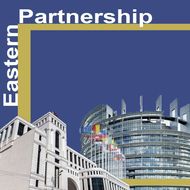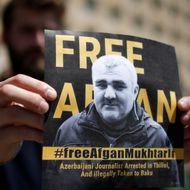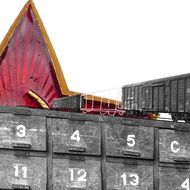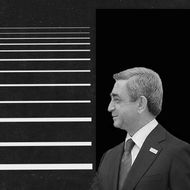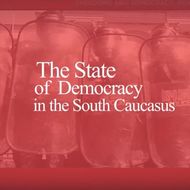Search articles
Search results for
Europe’s Balancing Act on the Nagorno-Karabakh Conflict
By Anna Barseghyan
The upcoming Brussels Summit on the Eastern Partnership will be another challenge for Armenia as it seeks to maintain the internationally-recognized OSCE Minsk Group framework, with its inclusion of the principle of self-determination.
Europe’s Migration Policies: Deportation of Armenians on the Rise
By Lusine Sargsyan
Following changes in migration policies of EU countries, an increasing number of illegal Armenian immigrants were deported from the Schengen area. Armenia’s government has introduced a draft program, which, if adopted, will be the first initiative aimed at providing state support to deported Armenians.
European Parliament Condemns Abduction of Azerbaijani Journalist Afgan Mukhtarli
The European Parliament adopted a resolution on June 15 strongly condemning the abduction of Azerbaijani journalist Afgan Mukhtarli near his home in Tbilisi. Mukhtarli, who had sought refuge in Georgia, was allegedly beaten and forcibly taken across the border to Azerbaijan where he has been charged with smuggling and illegally crossing international borders.
EVN WALKS
This past year, we did a special 10-part series of podcasts called EVN Walks. It features residents of Yerevan walking through the capital city, sharing their thoughts, memories and experiences.
Exile to Siberia
By Mikael Yalanuzyan
Between 1946 and 1949, around 90,000 Armenians repatriated to Soviet Armenia; they were families that had been displaced from their homes in the former Ottoman Empire during the Armenian Genocide. Some of them were exiled.
Exotic Tavush, Where They Raise Black Angus, Grow Olives and Make Drinks From Honey
By Arshaluys Barseghyan
From foraging in the lush forests to reviving Western Armenian recipes, to planting and harvesting kiwis, to experimenting and developing products made from honey, Tavush is becoming a hub of social enterprise and innovation.
Facebook’s Grip On Armenia
By Harout Manougian
Though Armenia is not unique, its embrace of Facebook has been unconditional, which may carry national security implications.
Fact Checking Serzh Sargsyan`s Interview
By Armen Grigoryan
In a July 16 interview, President Serzh Sargsyan spoke about issues of national security, including the state of the economy. The president also remarked on some of his statements in the past that had stirred controversy in the country. Armen Grigoryan compares numbers to President Sargsyan's statements.
Fact Sheet: The State of Democracy in the South Caucasus, Part I
By Karena Avedissian
Following the collapse of the Soviet Union, the three countries of the South Caucasus declared independence in 1991. This new instalment of “Understanding the Region” looks at the democratic trajectories of Armenia, Georgia and Azerbaijan. Part II will look at the state of democracy in the statelets of Artsakh (Nagorno Karabakh), South Ossetia and Abkhazia.
Fact Sheet: The State of Democracy in the Statelets of the South Caucasus, Part II
By Karena Avedissian
The South Caucasus is a region with three unresolved armed conflicts that began in the 1990s: Abkhazia, South Ossetia and Artsakh (Nagorno Karabakh). What is the state of democracy in these three statelets?


